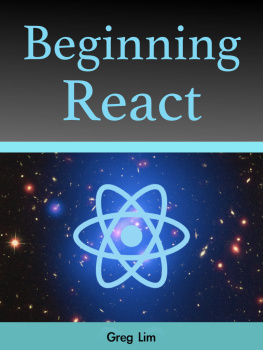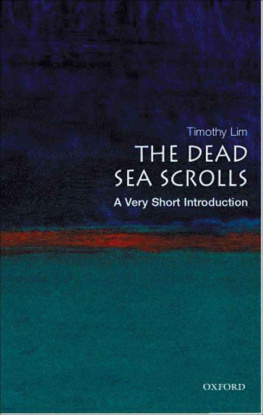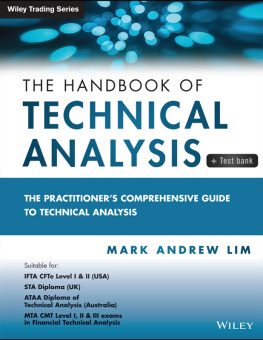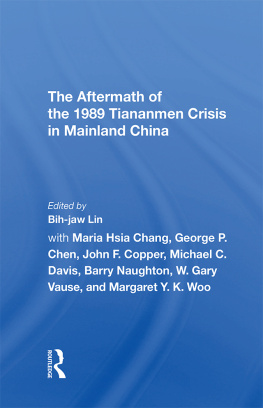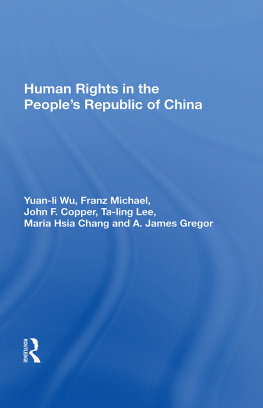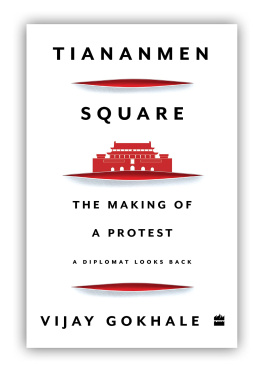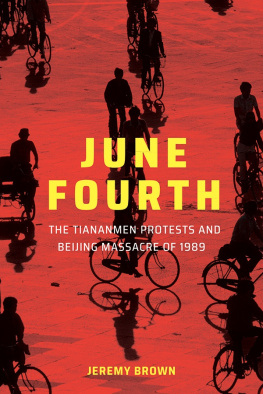Lim - The Peoples Republic of amnesia : Tiananmen revisited
Here you can read online Lim - The Peoples Republic of amnesia : Tiananmen revisited full text of the book (entire story) in english for free. Download pdf and epub, get meaning, cover and reviews about this ebook. City: Array, year: 2014, publisher: Oxford University Press, USA, genre: History. Description of the work, (preface) as well as reviews are available. Best literature library LitArk.com created for fans of good reading and offers a wide selection of genres:
Romance novel
Science fiction
Adventure
Detective
Science
History
Home and family
Prose
Art
Politics
Computer
Non-fiction
Religion
Business
Children
Humor
Choose a favorite category and find really read worthwhile books. Enjoy immersion in the world of imagination, feel the emotions of the characters or learn something new for yourself, make an fascinating discovery.

The Peoples Republic of amnesia : Tiananmen revisited: summary, description and annotation
We offer to read an annotation, description, summary or preface (depends on what the author of the book "The Peoples Republic of amnesia : Tiananmen revisited" wrote himself). If you haven't found the necessary information about the book — write in the comments, we will try to find it.
Longlisted for the Lionel Gelber Award for the Best Non-Fiction book in the world on Foreign Affairs
An Economist Book of the Year, 2014
A New York Times Book Review Editors Choice
One of the best analyses of the impact of Tiananmen throughout China in the years since 1989. --The New York Times Book Review
On June 4, 1989, Peoples Liberation Army soldiers opened fire on unarmed civilians in Beijing, killing untold hundreds of people. A quarter-century later, this defining event remains buried in Chinas modern history, successfully expunged from collective memory. In The Peoples Republic of Amnesia, Louisa Lim charts how the events of June 4th changed China, and how China changed the events of June 4th by rewriting its own history.
Lim reveals new details about those fateful days, including how one of the countrys most senior politicians lost a family member to an army bullet, as well as the inside story of the young soldiers sent to clear Tiananmen Square. She also introduces us to individuals whose lives were transformed by the events of Tiananmen Square, such as a founder of the Tiananmen Mothers, whose son was shot by martial law troops; and one of the most important government officials in the country, who post-Tiananmen became one of its most prominent dissidents. And she examines how June 4th shaped Chinas national identity, fostering a generation of young nationalists, who know little and care less about 1989. For the first time, Lim uncovers the details of a brutal crackdown in a second Chinese city that until now has been a near-perfect case study in the states ability to rewrite history, excising the most painful episodes. By tracking down eyewitnesses, discovering US diplomatic cables, and combing through official Chinese records, Lim offers the first account of a story that has remained untold for a quarter of a century. The Peoples Republic of Amnesia is an original, powerfully gripping, and ultimately unforgettable book about a national tragedy and an unhealed wound
Lim: author's other books
Who wrote The Peoples Republic of amnesia : Tiananmen revisited? Find out the surname, the name of the author of the book and a list of all author's works by series.


